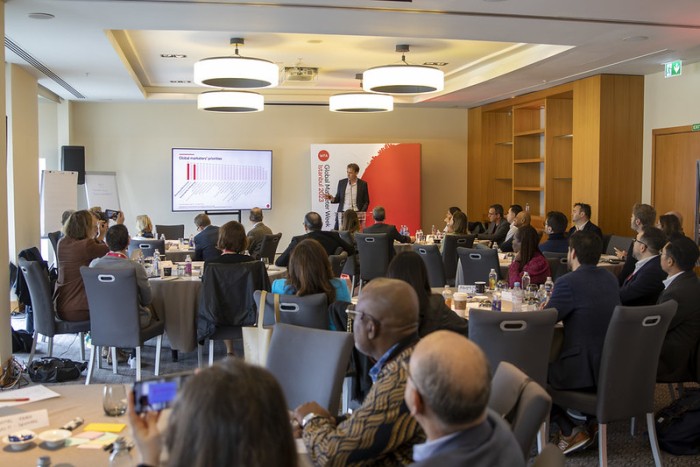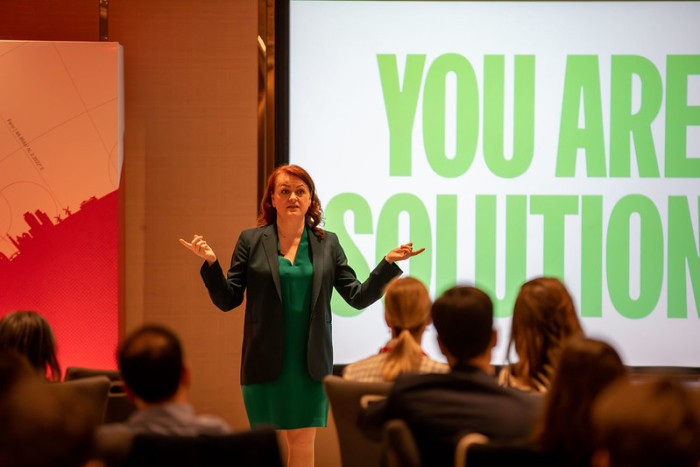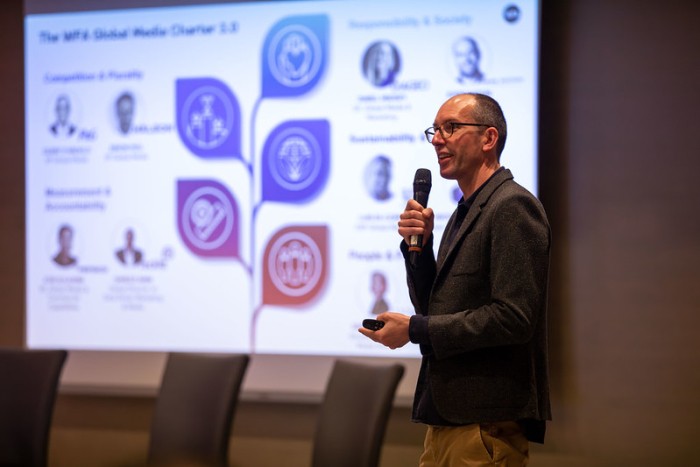Get analysis, insight & opinions from the world's top marketers.
Sign up to our newsletter.
WFA CEO, Stephan Loerke, offers his verdict on WFA Global Marketer Week in Istanbul
This quote sums up the future of marketing for me. Spoken by Rupen Desai in his presentation on regenerative marketing at Global Marketer Week, it was a sentiment that was also echoed in a host of other sessions too.
Rupen Desai, WFA VP for Asia and Advisory Board Member, Copenhagen Cartel
Global Marketer Week has always been about celebrating the impact that marketing can have on businesses, people and the planet and our time in Istanbul was no different. What made this quote so powerful is that it summed up what we need to do to continue to play that role and, importantly, to expand our impact.
Humility isn’t always a character trait associated with marketing but the future means working together with colleagues across our organisations, accepting consumer demands for better marketing and perhaps even accepting tougher regulations around what we can say about our products and services.
Being humble certainly doesn’t mean that we shouldn’t be ambitious, quite the opposite. But our ambitions should always outweigh our capabilities so we need to accept that delivering more than we are capable of will require new kinds of partnerships, with colleagues, with agencies and sometimes with other businesses.
“Businesses, governments and NGOs need to collaborate in new ways and create systemic change at an accelerated pace. At the same time, there is pressure on brands and marketers to respond to increasing consumer expectations for sustainable choices. We have an important role to play to make sustainable choices simple and preferred by the consumer” said Conny Braams, Chief Digital and Commercial Officer, Unilever
The leaders of our industry recognise this and in Istanbul we heard how many are already working hard to create frameworks that reward co-operation and partnership.
Talking to CMOs, I was struck by how much work was already being done to restructure and rethink ways of working. There was a recognition that real transformation will not come without effective partnership – both internally and externally.
CMOs recognised that they needed to ensure that sustainability is baked into the measurement framework and linked to remuneration in order to help build business cases for sustainability. They recognised the need for greater harmonization of metrics and KPIs are required across industry – including those being developed with AdNetZero for counting the carbon cost of media.

WFA's CMO Forum in Istanbul, April 2023
But they also knew that delivery would require partnership and interdependent frameworks that factored in the role of other parts of the business, including procurement. They knew they couldn’t afford to underestimate the importance of internal communications channels to impact change – and to leverage colleagues who could be valuable allies.
And ultimately, they understood that businesses needed to refine language at a financial level, for example by reporting SEBITA rather than pure EBITA (earnings before interest, tax and amortization) to track progress of the more sustainable brands in their portfolio.
The same level of effort could be seen in other areas of our work. In the Policy Forum it was recognised that marketing is too often disconnected from company ESG strategy, but also product and innovation.
Marketing policy needs to help deliver on sustainability ambitions and while environmental sustainability and DEI are the two biggest priorities for companies in terms of setting responsible marketing policies in 2023, it’s still only half who link them to their ESG criteria.
The policy experts also pointed out that partnership still requires ownership. Whoever is taking the lead on an initiative, success requires everyone to know and avoid a situation where nothing happens because everyone thinks it's someone else's responsibility.

Solitaire Townsend, Chief Solutionist & Co-Founder at Futerra, speaking at the WFA Policy Forum in April 2023
Delivery brings benefits, translating company purpose into actions and progress will not only reassure investors but also keep, and attract the best talent, while being as transparent as possible about progress builds trust across all stakeholder groups.
The importance of humility and the recognition that brands can sometimes get it wrong was highlighted in our Better Marketing session, where delegates discussed how best to communicate on sustainability. We’ve identified 11 tips but those that relate to humility and partnership include recognising that you don’t have all the answers and that this is a journey that all businesses and all consumers are on.
Getting sustainability communication right means collaborating internally across marketing, legal, policy and sustainability as well as seeking external views and even talking to regulatory bodies. Being open about your challenges and monitoring and publishing data that shows how you are progressing on the journey is critical to credibility.
The Media Forum looked ahead with the launch of a new Global Media Charter to create a strategic framing for the media challenges all advertisers wrestle with. Once again, there was a recognition of the impact that marketing has on people and planet, with the responsibility agenda running through multiple areas of the work.

Matt Green, Director of Media at WFA, presenting the new Global Media Charter at the Media Forum
These range from issues such as sensible management of inclusion and exclusion lists to limits on agency pitching, which are claimed to be “killing the industry bit by bit”.
Real change requires that we identify how the media responsibility agenda is also good for business. Simplistically we know that fraudulent or unsafe impressions cannot generate any ROI, but the business case needs to be amplified to deliver transformative change.
What I sensed in Istanbul was a level of passion and a desire to work together that I’ve never seen before. Marketers finally get it and the vast majority know that the status quo is no longer an option.
Our challenge is that the transformation needs to take place really rapidly. As a profession, we need to empower and enable that change to happen because the climate won’t wait for anyone.
“We are going to have to be amazingly humble,” said my friend, Rupen. “If we do that we will face the equation of our ambitions being dramatically larger than the resources we have. We don’t have all the answers. It’ll need vital collaboration internally between public affairs, legal, product teams searching for answers outside so we can move faster.”
I couldn’t agree more.